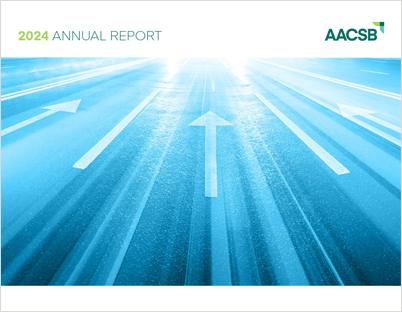Schools Assess Success in Shift to Online Delivery
The pandemic forced business schools to quickly pivot to online teaching last spring, but most administrators believe they handled the transition without seriously affecting the quality of the education that their institutions delivered, according to a new survey. “The Current and Future Impact of COVID-19 on the Business School Curriculum” has been released by the MBA Roundtable, a global association of business schools dedicated to advancing graduate management education. The report includes responses from deans, directors, and faculty at 118 schools who were surveyed during November and December 2020.
Ninety-eight percent of the respondents who worked with an in-person business school program before the pandemic say that their schools changed the delivery mode of their curricula in the spring of 2020. Of this group, 59 percent say they shifted to a hybrid environment, while 39 percent moved to a virtual mode. In addition, 43 percent of respondents who worked with a hybrid program in 2019 went fully virtual as a result of COVID-19.
They don’t anticipate that the situation will change any time soon. Nearly three-quarters (74 percent) expect to be in a hybrid environment in the spring of 2021, while 23 percent expect to be entirely virtual, and only 3 percent predict they will be back fully in person at any time during the semester.
While nearly all business schools adjusted their modes of delivery, the majority of respondents believe that the rigor (57 percent) and quality (56 percent) of their courses were not negatively affected by COVID-19. In addition, 53 percent report that the pandemic has not changed the content of the curriculum.
The most common adaptations have been modified assignments, flexible deadlines, pass/fail grading systems, and changes to the format of instructional materials.
Meanwhile, 59 percent say that the emergency has not had a negative impact on their ability to assess learning outcomes. In fact, as one respondent states, “A greater emphasis on student preparation has led to better classroom discussions, better breakout sessions, and better group work outside of class.”
Among respondents who do report a change in the content of the curriculum, the most common adaptations have been modified assignments (79 percent), flexible deadlines (68 percent), pass/fail grading systems (55 percent), and changes to the format of instructional materials, such as the creation of more asynchronous assignments (53 percent). Eighty-eight percent of the respondents in this group also report making changes to student assessments, such as adjusting time limits and adding online proctoring.
In addition, the switch to mostly virtual education has caused business schools to rely more heavily on flipped classrooms. Administrators say they have lessened the use of lectures by 32 percent. Some of these changes might be permanent. As one respondent puts it, “The online flipped classroom model will likely continue after [the] pandemic.”





